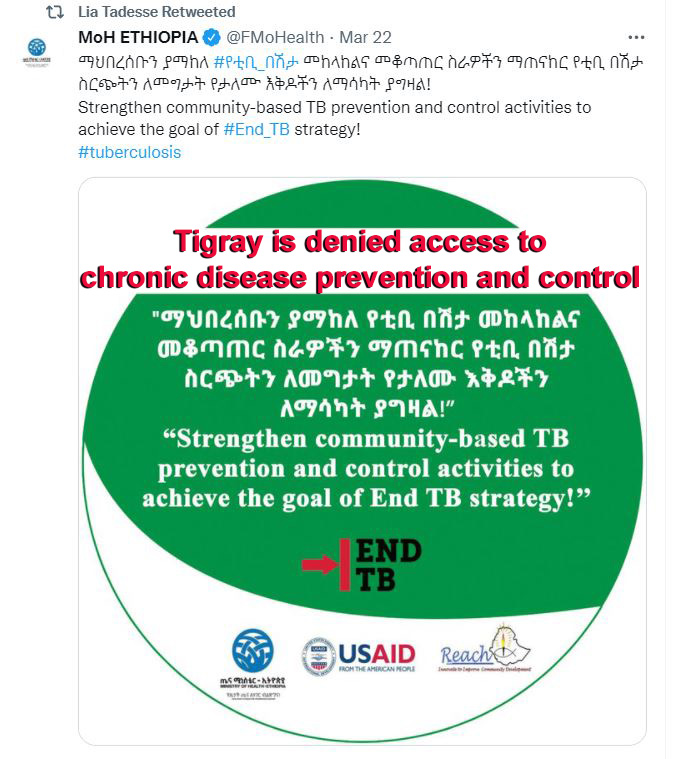
The medical blockade of Ethiopia on Tigray prevents diagnosis and treatment of disabling , deadly, and contagious infectious diseases such as tuberculosis, HIV-AIDs, and many others endangering not only Tigray but also neighboring Ethiopia, Eritrea, and Sudan. Almost since the beginning of the conflict in late 2020 over 43,000 HIV patients and 1500 active tuberculosis patients have gone without treatment. Before the war 164 TB cases per 100,000 population was the prevalence. Now without health care and food this no doubt has skyrocketed.
This week the Ethiopian Ministry of Health touted their treatment and prevention programs for tuberculosis while ceasing all completely in Tigray along with all other health services. Only a small portion of medications comes irregularly from the World Health Organization from the small airplane loads allowed.
Currently at least 83% of the Tigray population is facing significant food shortages which can ultimately lead to death but initially surely leads to decrease immunity to infection from chronic parasitic, bacterial, and viral infections such as TB and HIV. Very few immunizations against viral diseases commonly done in childhood and COVID19 have occurred. Because of drought, war, and poor agricultural planning crop production is now significantly reduced in not only Tigray but also Amhara, Oromo, and the Southern regions (SNNP). The displacement of millions of poor farmers and laborers now occurring carries a catastrophic risk for dramatic rises in prevalence of these infections into the Horn of Africa and beyond.
It is in Ethiopia’s best interest to restore prevention and control measures and health care treatment facilities to Tigray to substantially stop the development of epidemic disease outbreaks.

